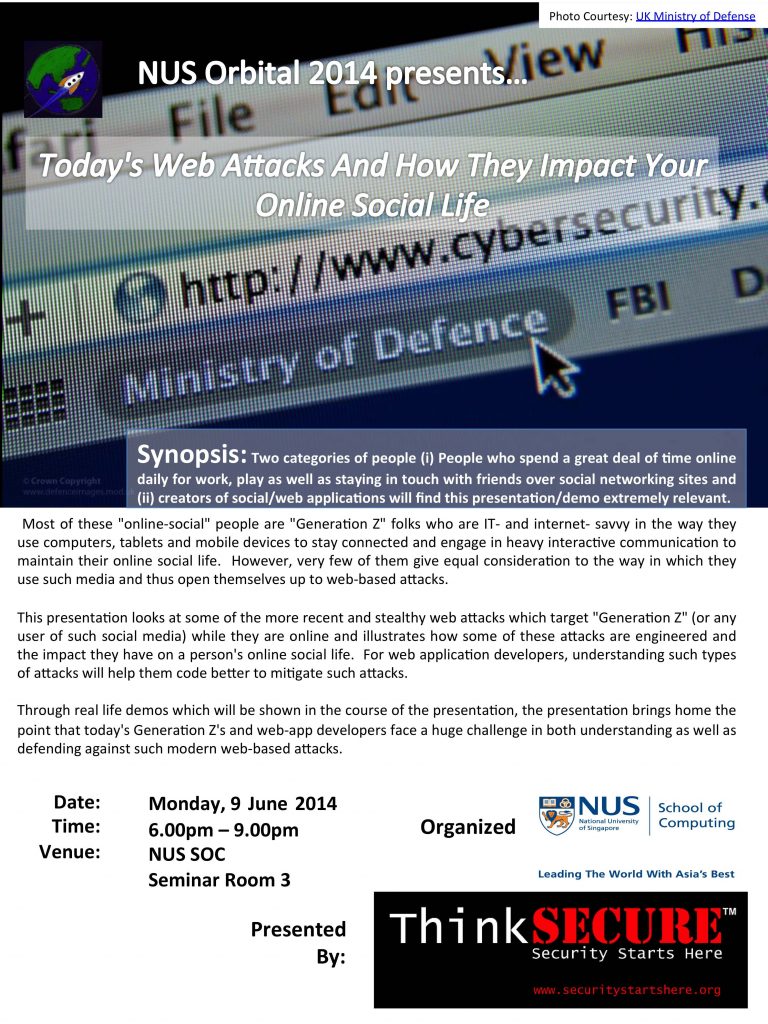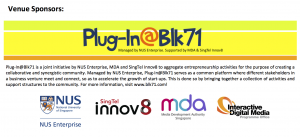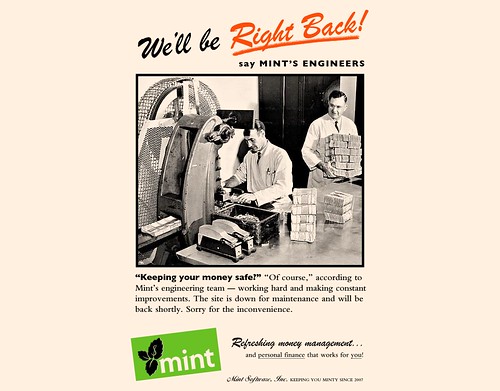Posted on June 5, 2014 by orbital
Dear all:
This coming Monday we’ll have our one and only Mission Control on the hot-button issue of security, with demos to boot! It is open to the public, so invite your friends to come. Christopher Low of ThinkSecure will be coming to SoC to give you a treat on how security works (and doesn’t work).
This MC session is not going to be recorded so if you want to hear this talk you must come down to SoC SR3 on Monday (N.B.: *not* the regular Tuesday date) 9 Jun, from 6-8pm.

Talk Synopsis: Two categories of people (i) People who spend a great deal of time online daily for work, play as well as staying in touch with friends over social networking sites and (ii) creators of social/web applications will find this presentation/demo extremely relevant. Most of these “online-social” people are “Generation Z” folks who are IT- and internet-savvy in the way they use computers, tablets and mobile devices to stay connected and engage in heavy interactive communication to maintain their online social life. However, very few of them give equal consideration to the way in which they use such media and thus open themselves up to web-based attacks.
This presentation looks at some of the more recent and stealthy web attacks which target “Generation Z” (or any user of such social media) while they are online and illustrates how some of these attacks are engineered and the impact they have on a person’s online social life. For web application developers, understanding such types of attacks will help them code better to mitigate such attacks.
Through real life demos which will be shown in the course of the presentation, the presentation brings home the point that today’s Generation Z’s and web-app developers face a huge
challenge in both understanding as well as defending against such modern web-based attacks.
Post edit: The slides for Chris’ presentation are here: http://securitystartshere.org/downloads/pres-Todays-Web-Attacks-How-That-Impacts-Your-Online-Social-Life.zip











